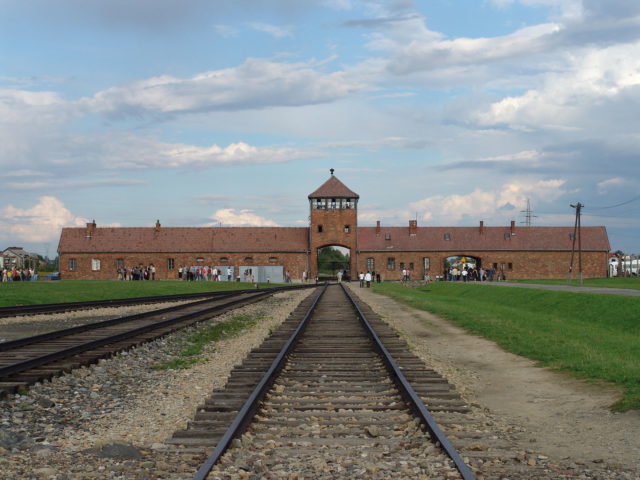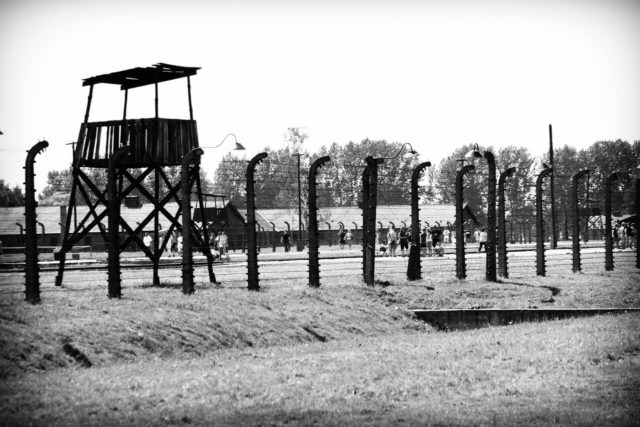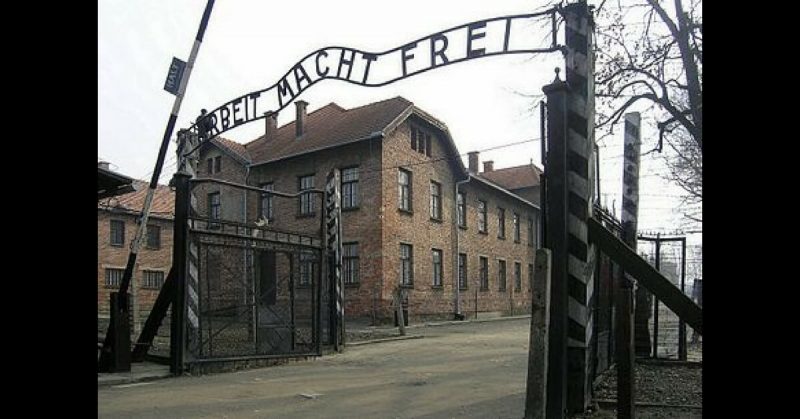Few people have had a more ironic name that Charles Coward. This Second World War soldier risked his life while a prisoner of the Nazis, saving hundreds of others from death in the concentration camps.
Changing Career to the Army
At the age of 32, Charles Coward decided to join the British Army. It was an unusual decision for a man his age. In peacetime, most men started their military careers while still young.
While men of all ages would sign up when World War Two broke out, Coward made his choice in 1937. Trouble was brewing in Europe, but Britain was not yet under threat. Those Britons determined to fight Fascism were doing so as volunteers in Spain.
Coward did well in the army. His strength of character earned him a responsible position as quartermaster battery sergeant major in the Royal Artillery.
Lost on the Road to Dunkirk
Sergeant Major Coward joined the British Expeditionary Force traveling to France at the start of the war. These were the men who, as France fell, were pushed back to Dunkirk. The escape of so many was a tribute to the determination of both the army and the civilians who helped bring them out.
Coward was not one of the lucky ones. On May 25, 1940, during the retreat, he was captured by the Germans.
A Troublesome Prisoner
He might have been a prisoner, but Coward was not the sort of man to quietly accept defeat. With admirable determination, he made himself one of the most troublesome POWs in German hands, a thorn in the side of his jailors. He committed acts of sabotage and tried to escape many times, almost getting away on several occasions. Once, while on the run, he impersonated an injured German soldier as part of his attempt to get away.

The Germans had ways of dealing with prisoners like Coward. He was sent to harsher confinement in Stalag 8B. That POW camp was located next to the Buna-Monowitz oil factory, a slave labor complex attached to the Auschwitz concentration camp.
Coward was about to see the real horrors of Nazism.
Compassion Amid Cruelty
One of the most responsible posts among the British POWs was their Red Cross liaison officer who looked out for the welfare of the other inmates. It was a particularly demanding role at Stalag 8B, where many prisoners were used as forced labor, against the rules set down in the Geneva Convention.
Coward’s experience, strong will, and increasingly fluent German led his fellow POWs to appoint him as their Red Cross liaison officer. He brought his usual determination and creativity to the role. As well as fulfilling his official duties for the care of his comrades, he used his greater freedom of movement to support sabotage efforts.
The freedom also made him a witness to the atrocities of the Third Reich.
Witness to the Holocaust
Living near the gates of Buna-Monowitz, Coward watched the arrival of trainloads of Jews and others the Nazis found offensive. There they were selected between those to be used for forced labor, and those sent straight to death in the gas chambers.
Using coded letters to a fake relative, Coward reached out to the British authorities. He sent them information about what he was seeing.
The turning point from observer to action came after another POW was identified as Jewish and sent into the Buna slave labor camp. He got a note to Coward, who bribed an SS guard to let him join a labor detail returning to the prison so he could meet the prisoner.
There Coward saw the dreadful conditions of Jews in a Nazi camp. Multiple men crammed together in tiny beds. So little food that prisoners fought for what scraps there were. Men being worked to death, their companions then holding up their bodies at roll call in the hope of gaining extra rations.
Saving Lives with Dead Bodies
Coward was appalled and determined to act.
One of his contacts, an SS sergeant major, was fond of the chocolate the Red Cross sent to British POWs. Using this as a bribe, Coward obtained access to the documents and bodies of dead non-Jewish prisoners. With the remains of those deceased men, he would save others from death.

The escapes that followed used an ingenious system. Each Jewish escapee hid in a ditch beside a road leading to Auschwitz. It was the route along which laborers who were no longer considered capable of work were marched to the death camp.
Coward then lay the dead body of a non-Jewish prisoner on the road. That prisoner’s papers would be given to the Jew, providing him with a new identity. The Nazis assumed the dead body on the road had died while marching to the death camp. By disguising themselves as POWs, over 400 Jews were saved from extermination.
It was an incredible risk for Coward to take, arranging all those escapes but it paid off.
Nuremberg
After the war, Coward provided a report on what he had seen to the tribunal on Nazi atrocities at Nuremberg. His first-hand testimony provided a compelling and detailed account of the murderous actions of officers and guards at Buna-Monowitz. It led to the conviction of several senior officials.
For the men he could not save, Coward had helped to bring them justice.
A Brave Man Remembered
Coward was remembered fondly by those whose lives he saved. A tree was planted in his honor in the Avenue of the Righteous at the Holocaust Memorial and Museum in Jerusalem, Yad Vashem. On his death, an official from the museum wrote to his family, paying tribute to his selflessness and heroism.
In the most difficult of circumstances, Charles Coward had taken the bravest of actions. For that, his memory lives on.
Source:
Gordon Brown (2008), Wartime Courage.
